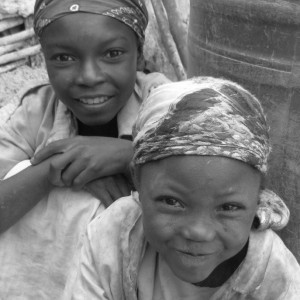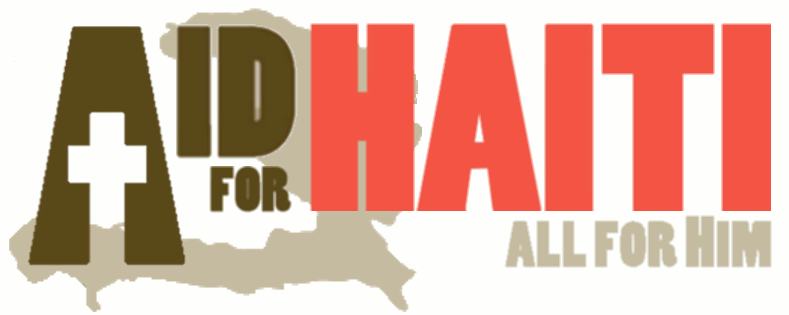Help us help the least of these.
Aid for Haiti does not run an orphanage but we do encounter many orphans during our medical work and try our best to help them in any way we can. Below is a story of one of these orphans. Please consider helping in any way you can.
Many times we can feel overwhelmed with all the needs we see around us in the world. We look down at our meager resources and feel like such an inadequate gesture could not be of any significant value. There is too much to do, too much ignorance, too much poverty, too much suffering. However, the truth is that our efforts, no matter how seemingly small, do make a difference.
In the slums and streets of Haiti, thousands of homeless children make up a labor force of orphans referred to by the rest of the community as “enfants sans revs”. In Creole, this means literally “children without dreams” and these truly are children without dreams and without a future. The reasons why these children have found themselves in this situation are endless, but they all share a common destiny, hopelessness. Many work as child slaves to pay for the one meal a day that will keep them alive and face innumerable perils and hardships. Very few are able to attend school and many die alone after months of near starvation and unattended illness. There is now an estimated 300,000 of these children living in Haiti today, and three fourths of this number are believed to be girls. These children are living proof that slavery is not just a thing of the past, but is instead the stark, nightmarish reality of their everyday lives.

Meet Shadrack. Shadrack is a boy of about thirteen years old, even though his exact age cannot be determined. A few years ago, his parents, which were storekeepers in Haiti’s capital city of Port-au-Prince, were killed in a botched robbery. Young Shadrack was turned out onto the street by the landlord of his parent’s house, and thus his struggle for survival began. He managed for a time in the huge crime-ridden metropolis until he met a young man from a rural village, looking to find someone to help on his parents farm while he traveled to the Dominican Republic. Shadrack agreed to come and work. For the next two years, Shadrack worked hard and received little in return besides a place to sleep, scanty meals, and regular tongue lashings.
Shadrack was living in this rural area of Patmos when our AFH team met him. He cheerfully hiked along beside the team as they brought out supplies for the clinic they were planning to have there. Those on the team were struck by his shockingly thin frame and a face that bore the absence of childhood, a face that seemed to have lived far beyond his years. After he shared his story, some of the team members began to discuss among themselves the possibility of bringing Shadrack back to Port-au-Prince. Guyteau, a young Haitian man acting as a translator, shared how he once had been a boy on the streets of Port, but had been rescued and given a second chance at life thanks to a missionary and his family who took a dedicated interest in his life. He now has a good job, plans to marry soon, and has a bright future. Shadrack’s plight touched his heart because it was one that he could relate to so well. If possible, he wanted to give Shadrack the same opportunities that he had been given.
 After discussing it among themselves, the team made arrangements with the older couple that he worked for to release him. After only a few days with a group of people that showed him genuine love and concern, the transformation was amazing. Virginia Rudolph recalls that “The little guy was dumbstruck at the change of circumstances… and it was so neat to see him open up after being so shy and reserved”. Shadrack is now living with a team member in Port-Au-Prince and plans to attend school.
After discussing it among themselves, the team made arrangements with the older couple that he worked for to release him. After only a few days with a group of people that showed him genuine love and concern, the transformation was amazing. Virginia Rudolph recalls that “The little guy was dumbstruck at the change of circumstances… and it was so neat to see him open up after being so shy and reserved”. Shadrack is now living with a team member in Port-Au-Prince and plans to attend school.
Jesus tells us in Matthew chapter 24 that if you show mercy to any child, you have showed it to Him. While the task of bringing hope to the millions of children like Shadrack seems daunting, we cannot cease to make the changes that we can just because finishing the task seems impossible. We will never finish if we do not start. The vision of AFH is to touch lives like Shadrack’s with medical care and also with the gospel. Shadrack is just one life touched, and it’s true that there are uncountable others to reach, but these kind of differences are the kind that are made bit by bit, and child by child. Just as in the story of the loaves and fishes, gifts offered with a sincere heart can be multiplied beyond our wildest dreams if we place them in the supernatural hands of the Savior.
